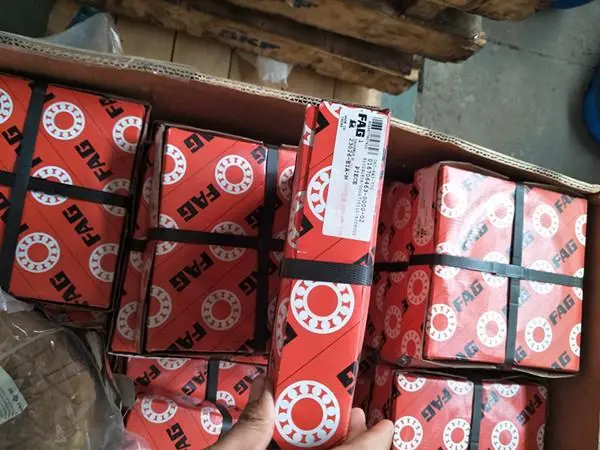In the world of automotive engineering, precision and reliability are paramount. Every component in a vehicle plays a crucial role in ensuring a smooth and safe driving experience. One such component that often goes unnoticed but is of utmost importance is the automotive bearing. Among the many bearing manufacturers, FAG Bearings, a brand under the Schaeffler Group, has earned a stellar reputation for its exceptional quality and performance. In this article, we will explore the significance of FAG Bearings in automotive applications.
The Role of Bearings in an Automobile

fag bearing
Bearings are essential components in an automobile’s various systems, including the engine, transmission, wheels, and suspension. They facilitate smooth, frictionless rotation and movement of critical parts, reducing wear and tear and increasing overall efficiency. Without bearings, the mechanical parts of a vehicle would grind against each other, causing excessive heat, vibrations, and premature failure.
FAG Bearings: A Legacy of Excellence
FAG Bearings, established in 1883, boasts a rich history of innovation and engineering excellence. Their commitment to quality and precision has made them a preferred choice for automotive manufacturers worldwide. FAG produces a wide range of bearings designed specifically for automotive applications, meeting the demanding requirements of the industry.
Types of FAG Bearings in Automotive Applications
- Wheel Bearings: One of the most crucial applications for bearings in automobiles is in the wheel assembly. FAG wheel bearings are designed to withstand high radial and axial loads, ensuring stability and safety while driving. They also contribute to improved fuel efficiency by reducing rolling resistance.
- Engine Bearings: The engine is the heart of any vehicle, and the components within it must operate flawlessly. FAG engine bearings provide the necessary support for crankshafts and camshafts, minimizing friction and enabling the engine to run smoothly.
- Transmission Bearings: In automatic and manual transmissions, FAG Bearings play a vital role in maintaining gear engagement and enabling seamless gear changes. These bearings are engineered to endure high loads and extreme temperatures.
- Suspension Bearings: In the suspension system, FAG Bearings contribute to ride comfort and handling. They allow for controlled movement of suspension components, ensuring a stable and comfortable ride.
- Steering System Bearings: The precision required in steering systems demands high-quality bearings. FAG Bearings are known for their durability and low friction, contributing to precise and responsive steering control.
Benefits of Choosing FAG Bearings
- Durability: FAG Bearings are built to last, even in the harshest automotive environments. Their superior materials and manufacturing processes ensure longevity and reliability.
- Reduced Maintenance: With FAG Bearings, automotive manufacturers and owners can enjoy reduced maintenance costs due to their longevity and minimal wear and tear.
- Enhanced Performance: The precision and low friction characteristics of FAG Bearings contribute to improved vehicle performance, including fuel efficiency and handling.
Conclusion
In the world of automotive engineering, where reliability and precision are paramount, FAG Bearings have proven themselves as a trusted and indispensable component. Their legacy of excellence, coupled with a wide range of bearing types designed for various automotive applications, makes them a top choice for automotive manufacturers and enthusiasts alike. With FAG Bearings ensuring smooth and efficient operation, vehicles can perform optimally, providing drivers with a safe and enjoyable driving experience.
Exploring the Excellence of FAG Bearings: Precision, Durability, and Reliability
The Suffix Meaning of FAG bearing
Discover the Excellence of FAG Bearing: A Leader in Quality and Performance

 SKF Bearing
SKF Bearing NSK Bearing
NSK Bearing FAG Bearing
FAG Bearing TIMKEN Bearing
TIMKEN Bearing INA Bearing
INA Bearing NTN Bearing
NTN Bearing KOYO Bearing
KOYO Bearing NACHI Bearing
NACHI Bearing
